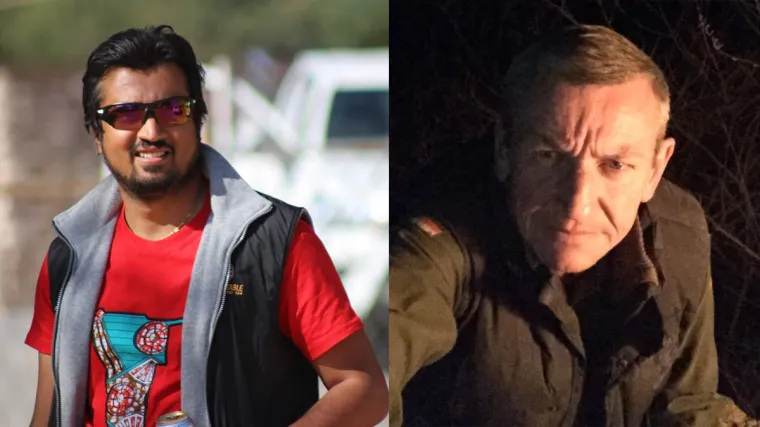On February 12, 2022, at around 5 p.m., Namibian police briefly detained freelance investigative reporters John Grobler and Nrupesh Soni for allegedly trespassing at GoHunt Namibia Safaris’ farm in the Omaheke region, east of Windhoek, the capital, because they used a drone to film elephants on private property, according to the journalists, who spoke to CPJ via messaging app, and local media reports.
The pair were investigating the alleged illegal sale of pregnant wild elephants, which were purchased during a controversial government auction, to unknown groups in Dubai, according to the same sources. As part of their investigation, the journalists used a drone to fly without permission over the privately owned farm, where the elephants were being kept.
On their way back to Windhoek, the journalists were stopped by wildlife rangers who mounted a roadblock in the town of Gobabis, about 55 miles (88 kilometers) west of GoHunt Namibia Safaris’ farm, said Grobler.
The farm’s owner, Gerrie Odendaal, told CPJ via messaging app that the rangers stopped the journalists after he lodged a trespassing complaint with the police and wildlife authorities, saying the journalists violated his privacy when they flew the drone over his property and recorded footage without permission.
“Imagine someone doing that and taking pictures while you are in a swimming pool having fun! That is when I decided to alert the police and the wardens in the area and that is how a roadblock was mounted for them,” Odendaal said, who added that the Namibian government permits the international exportation of auctioned elephants.
The United Kingdom, among other countries, has condemned the export of wild African elephants bought through government auctions, alleging that it violates the Convention on International Trade in Endangered Species of Wild Fauna and Flora, a treaty that limits where and how wild elephants are exported from countries such as Namibia, according to a National Geographic report. Transportation of pregnant elephants is also illegal under section 2(1) of the convention’s transport guideline for endangered species.
Police arrived at the roadblock and took the journalists to the Gobabis police station, where they were detained for about four hours, said Grobler, who added that police disabled his vehicle’s car security system, searched it without his consent, and later seized Soni’s drone and its memory card “for the investigation.”
The journalists were released the same day after police recorded their statements and warned them that they were being investigated for alleged trespassing, according to Grobler and Soni.
In addition to using a drone to fly over Odendaal’s farm and recording visuals and photos of elephants, the journalists are also accused of using the drone to “willfully disturb the specially protected game without a permit or written authority issued by the Minister of Ministry of Environment, Forestry and Tourism,” according to a police statement reviewed by CPJ.
If convicted of trespassing, the journalists could face a fine of 1,000 Namibian dollars (US$67), imprisonment for a year, or both, according to Section 2 of the Trespass Ordinance 3 of 1962.
As of March 28, 2022, Grobler and Soni were still under police investigation and Soni’s drone and memory card had not been returned, Grobler said.
When reached via messaging app, police spokeswoman chief inspector Kauna Shikwambi refused to comment on the investigation, saying the matter would soon be before court. A court date has not been set yet, according to Grobler.
Ministry of Environment, Forestry and Tourism spokesperson Romeo Muyunda did not respond to CPJ queries sent via messaging app.
On January 8, 2010, Grobler was assaulted in retaliation for his work by four men in a bar who cut his face with a broken piece of glass and kicked him repeatedly in the head, as CPJ documented at the time.
Editor’s note: The first and third paragraphs have been updated to correct a typo in the name of the farm.
